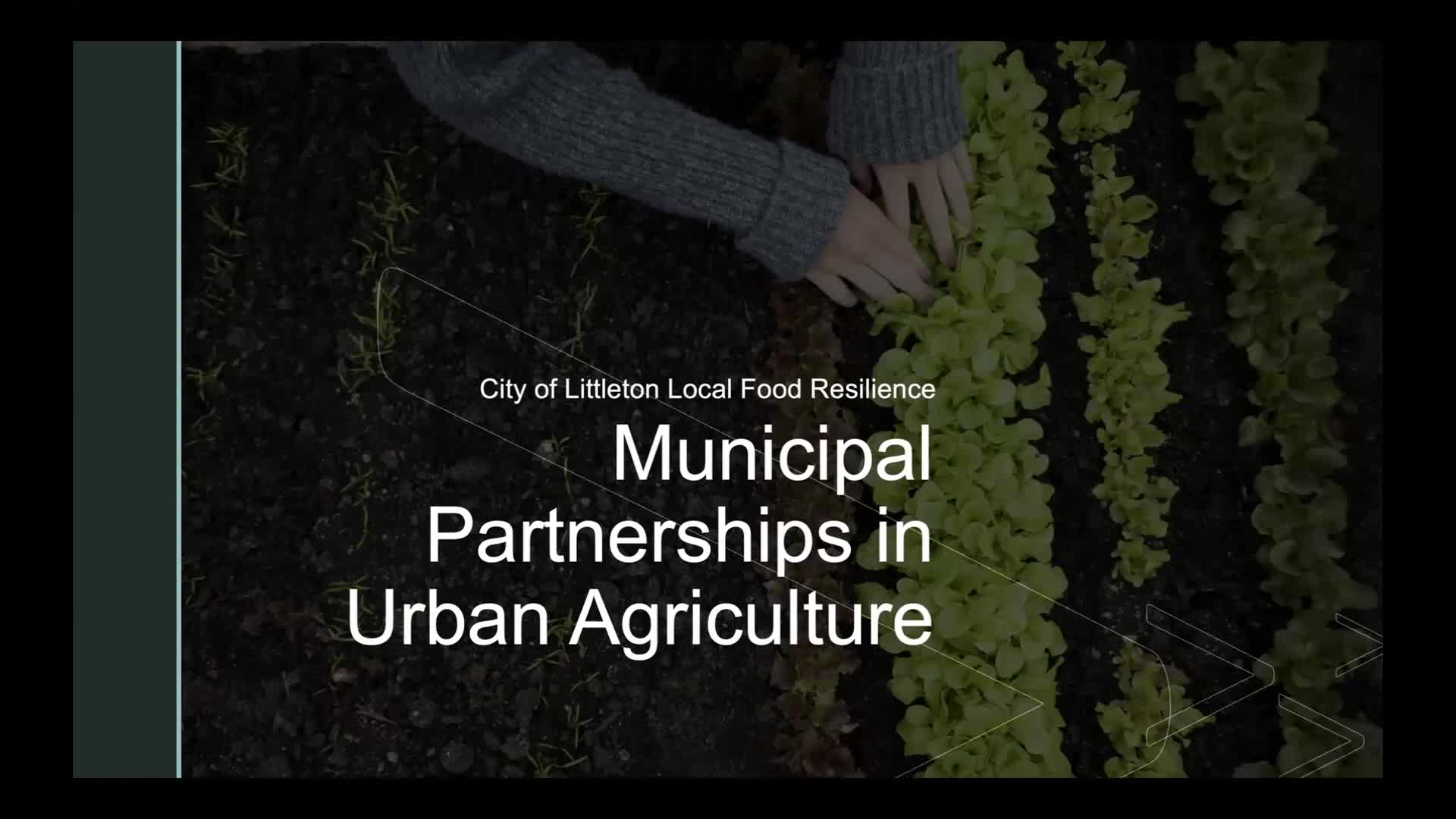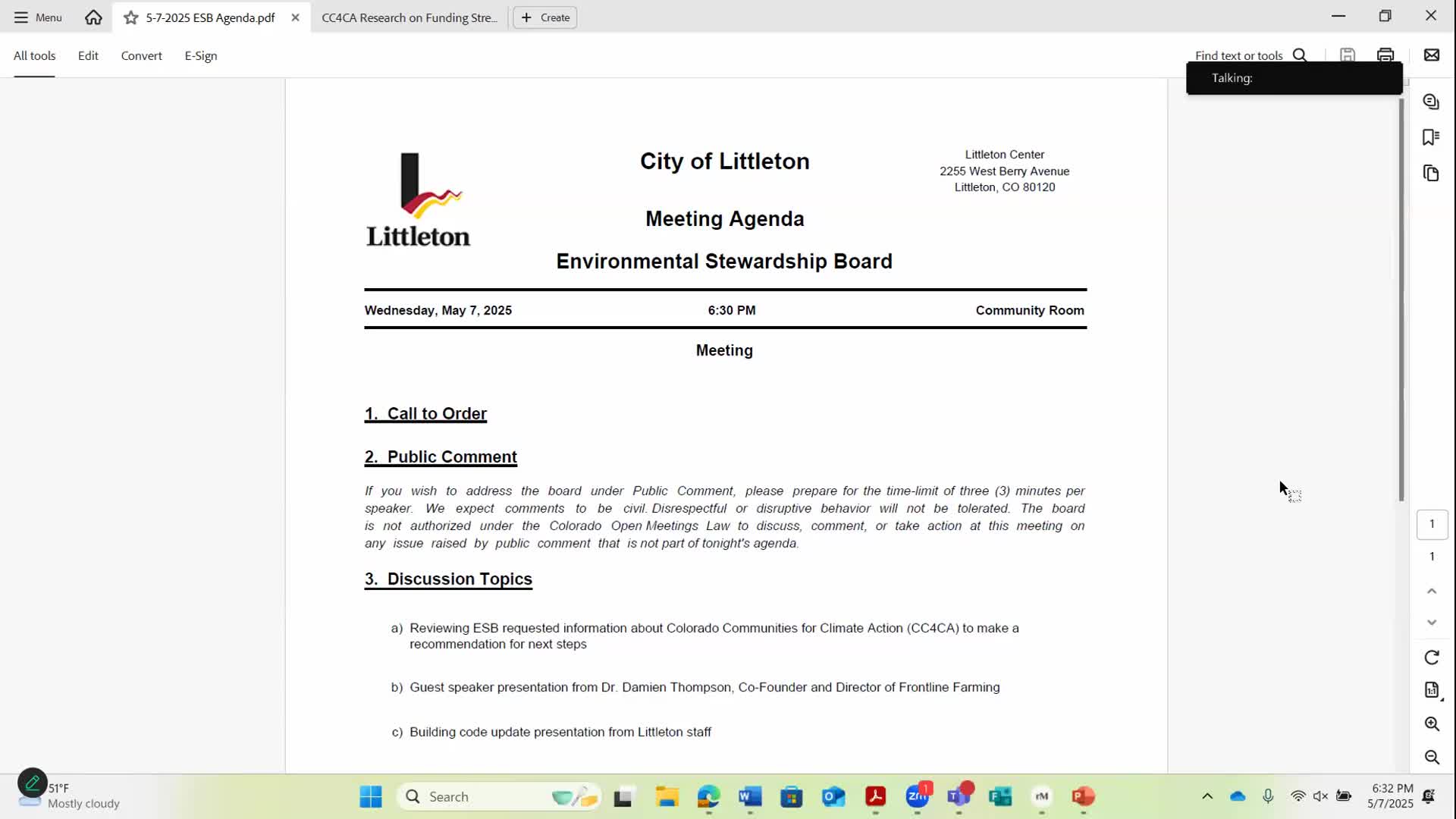Article not found
This article is no longer available. But don't worry—we've gathered other articles that discuss the same topic.

Littleton board hears urban agriculture briefing; presenter urges water, land tenure and partnerships

Resident urges Littleton to fix staffing, cross‑department coordination and budgeting in environmental action plan; board member offers research to council

